Refinishing Hardwood Floors
10 reasons to pay the right price for a professional service
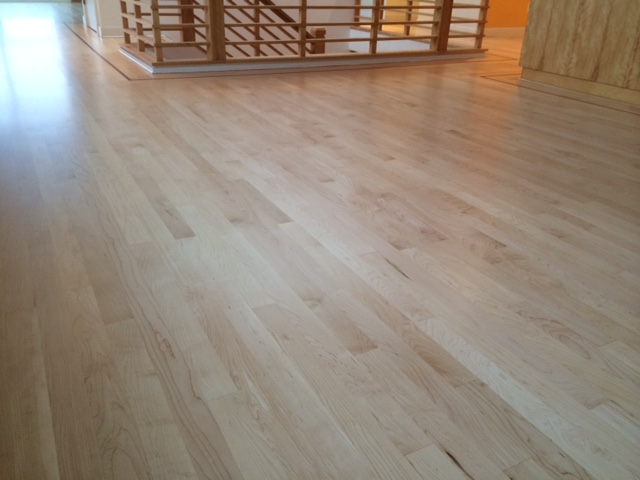
When it comes to refinishing your hardwood floors you want to make the right decision of who you’re hiring. If you hire the wrong person to refinish your hardwood floors you will have more problems than just a badly sanded floor:
- Every time you refinish your hardwood floor you take away from the life of the floor. There’s only so much material that can be sanded. If you’re refinishing your hardwood floors more than once or twice, it is most likely you’re have to replace the floor next time.
- The wrong person might try to fix the floor by sanding it again and now you’re risking another bad sanding.
- Every time you refinish your hardwood floors you have to be away from home.
- As much as we all love vacations, staying at friends, family or a cheap hotel for a few days in your home town while your floors are being done, is not a dream vacation.
- The furniture moving costs are higher if you have to do this more than once.
- If you have kids or pets it might turn into a great challenge.
- Being away from your home and your routine interrupts your personal and your professional life.
- Unqualified contractors usually have bad equipment, this means dust, dust and more dust on all of your belongings from the walls to inside your closets.
- Refinishing your wood floors, if done improperly will turn into a minimum of several weeks ordeal.
- In a lot of cases the home owner or the contractor want to go to court. That means you have to gather your evidence, facts, hire a lawyer and now you’re in for a longer process and more money out of pocket.
As a hardwood flooring expert I have seen many badly sanded floors. The home owners were dealing with the problem usually for more than a month or two by the time they found me. Once hired, each and every one of them were shocked and thrilled to see my company in action:
- We are on time.
- We are on schedule.
- We do it once.
- We refinish the floors with complete dustless systems.
- We deliver what we promise.
- Most jobs are done in less than a week.
A lot of us like saving money and there’s nothing wrong with buy one get one free deals at the grocery store. When it comes to refinishing hardwood floors, you literally get what you pay for. I should really be saying you get what you don’t pay for.


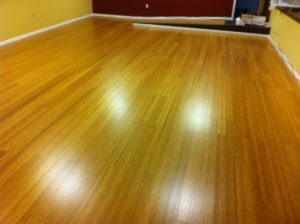
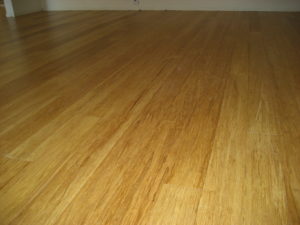
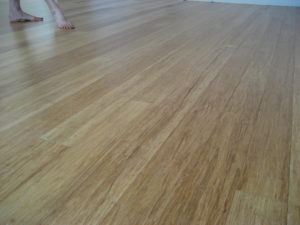
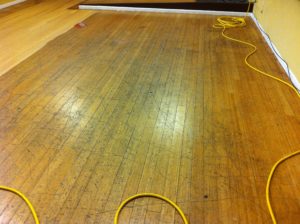
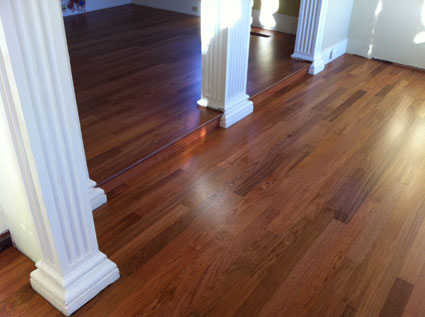
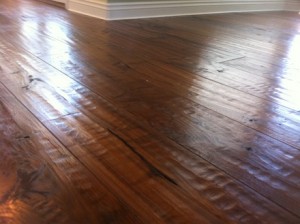 Hand scraped floors are beautiful and full of interesting elements; peaks and valleys, pronounced color variation, knots, mineral streaks and more. Much like any other wood floor it requires regular cleaning and maintenance. Here are a few things you should do to preserve the beauty of your hand scraped floors:
Hand scraped floors are beautiful and full of interesting elements; peaks and valleys, pronounced color variation, knots, mineral streaks and more. Much like any other wood floor it requires regular cleaning and maintenance. Here are a few things you should do to preserve the beauty of your hand scraped floors: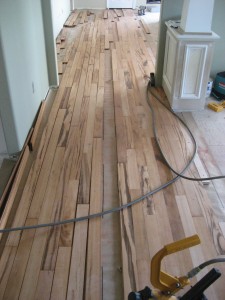 They have weird names that are hard to pronounce. They come from countries you didn’t know existed (let’s face it – you didn’t). Everyone hates working with them: you, your nailers, your saw blades, even your finish! Yes, I’m talking about exotic woods. In our trade we are familiar with names like Brazilian Cherry, I’pe, and Padauk which are more readily available. Some woods are so rare and expensive they are sold by weight like Cocobolo (
They have weird names that are hard to pronounce. They come from countries you didn’t know existed (let’s face it – you didn’t). Everyone hates working with them: you, your nailers, your saw blades, even your finish! Yes, I’m talking about exotic woods. In our trade we are familiar with names like Brazilian Cherry, I’pe, and Padauk which are more readily available. Some woods are so rare and expensive they are sold by weight like Cocobolo (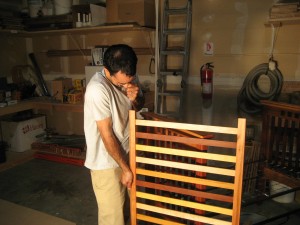 Sanding and finishing: here is a dilemma = I should start with a 36 grit because this is a really hard wood but, because it is such a hard wood how in the world am going to take those scratches out? Well, you are right. Better to start with 50 or 60 and change your abrasive frequently instead of starting with 36 or 40. Trying to get scratches out of Ipe’ is like trying to…well…let’s not even go there.
Sanding and finishing: here is a dilemma = I should start with a 36 grit because this is a really hard wood but, because it is such a hard wood how in the world am going to take those scratches out? Well, you are right. Better to start with 50 or 60 and change your abrasive frequently instead of starting with 36 or 40. Trying to get scratches out of Ipe’ is like trying to…well…let’s not even go there.